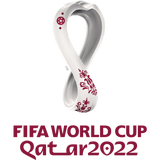
Russia’s World Cup fixer deals with scams and injuries
MOSCOW (AP) Oleg Semyonov is Russia's World Cup fixer. The call center he runs for fans is a hubbub of talk in several languages, resolving taxi scams, ticket fraud and even medical emergencies.
''Fans from Tunisia, Morocco, Asian countries celebrate so emotionally on Manezh or Nikolskaya,'' he says, naming two locations where fans gather in central Moscow, ''that they injure themselves. Tearing a meniscus or something like that. We help them get an ambulance and emergency care in hospital.''
''They receive free analysis of the condition but then they get cunning - these people are like that - and ask `give me this operation for free.' A lot of them have arrived without health insurance.''
Russia's welcoming foreign fans and lets them gather and celebrate on the street in ways usually banned under strict laws on unauthorized protests and gatherings. Still, Semyonov says the state health system draws the line at free surgery.
Semyonov, formerly a leading figure in Spartak Moscow's hardcore fan scene, says the center gets a call every two or three minutes and has grown to employ 96 staff speaking languages including English, Spanish and Arabic.
Some Russian hooligans who were banned from World Cup games have inquired about trying to get in on other people's ID - not a good idea because of tight security, Semyonov says - and there are charitable callers like a man in Yekaterinburg keen to offer lodging in his home for free.
While Semyonov says his center hasn't received any calls about foreign fans being attacked - ''thank God'' - bag thefts, lost tickets and various kind of scams often crop up.
''There have been attempts to offer Russian fans some kind of (fake) electronic tickets,'' he said. ''Imagine a fan living on (the Russian island of) Sakhalin (near Japan). He gets on a six-hour flight after having sent his money to some site or other and received some picture, gets to Moscow or St. Petersburg and finds out he's thrown his money away.''
Fans have booked hotels only to be turned away on arrival, while some taxi drivers have raised fares by three or four times, he adds. Social media means scams can be exposed quickly.
''People learn from theirs and others' mistakes and there are fewer fraud cases already,'' he says. ''Ten years ago, we wouldn't have had that.''
A restaurant near Moscow's Luzhniki stadium faces an investigation over claims it produced Russian and English-language menus - the latter with doubled prices. The restaurant told The Associated Press it was a ''training aid'' for staff and was distributed by mistake.
Semyonov is reluctant to give full details of funding for the call center, run from the offices of a Moscow law firm. Calls are free and most inquiries seem unlikely to need any kind of formal, paid legal work.
He says the center receives ''support'' from the Russian Sports Ministry and has to provide weekly reports to the government detailing the numbers of calls received and problems sorted.
World Cup tickets are worthless without a government-issue Fan ID and those can be canceled at any time. Semyonov suspects the Russian security services are monitoring social media to look for fans to ban.
''One fan posted a photo with the comment that `Oh no, it'll be hard to get onto the field from here.' Obviously the security services monitor all this and the fan got a message that `your Fan ID is annulled,''' he said. ''We live in a world whether Big Brother is following us. Big Brother, big data.''
---
More AP World Cup coverage: https://apnews.com/tag/WorldCup
---
James Ellingworth is at www.twitter.com/jellingworth
